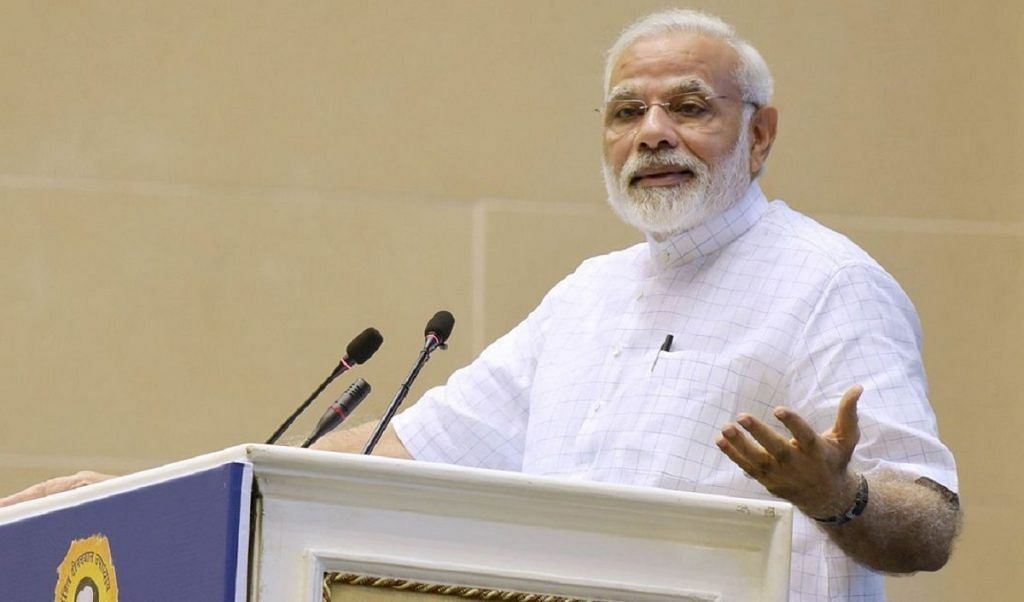Other names recommended by the collegium with Harnaresh Singh Gill, Basharat Ali Khan, Mohammad Mansoor & Mohd. Nizamuddin have been approved or rejected.
New Delhi: The elevation of Justice K.M. Joseph may be the latest flashpoint between the Modi government and the higher judiciary, but four other appointments — of high court judges — have been inexplicably stuck with the Centre for at least two years, ThePrint has learnt.
All four — Harnaresh Singh Gill, Basharat Ali Khan, Mohammad Mansoor and Mohd. Nizamuddin — were cleared by the three-member Supreme Court collegium, which is the final step in the selection process.
The case of these four lawyers is curious more so since the other names that were recommended along with them have either been accepted or rejected.
Selection of judges has been a point of serious contention between the Narendra Modi government and the higher judiciary since 2014, when the Centre brought in the National Judicial Appointments Commission (NJAC) Act. The constitutional amendment — which gives the executive a say in the appointments of judges — was struck down as “unconstitutional” by the apex court a year later.
The two sides have since been wrangling as vacancies in courts across the country pile up. Vacancies have breached the 400-mark in the 24 high courts, with 413 positions of the sanctioned 1,079 yet to be filled.
The 4 left out
Harnaresh Singh Gill’s name was cleared in June 2016 by the collegium of the Punjab and Haryana High Court along with nine others for appointment as a judge. It was also cleared by the Supreme Court collegium in April last year.
His fate, however, remains a mystery as all others on the list were either appointed or rejected. No one seems to know why the government, which hasn’t even returned his file for reconsideration, has been sitting on it.
“The file hasn’t been sent back to us. You ask the government,” said a member of the collegium when asked about the delay.
Besides Gill, names of six lawyers — five from Haryana and one from Punjab — were sent by the high court collegium. All six were appointed judges on 10 July 2017. The other three on the list were district and sessions judges from Punjab.
“We checked with the government and were told that a final decision is still to be taken on the name. But it is strange that the government is sitting on the file for such a long time. There was nothing adverse against him in the intelligence report too,” said a Supreme Court official.
The second lawyer is Mohd. Nizamuddin, whose name was recommended for elevation to Calcutta High Court in early 2016.
As with Gill, others on the list with Nizamuddin have been cleared.
“Even the names that were sent after him have been cleared. But no reason has been given on why the government isn’t clearing his name,” said a source in the Supreme Court.
The final two names are from the Allahabad High Court, the biggest in the country. Its sanctioned strength is 160, but the court had 63 vacancies to fill on 1 May 2018.
The names of Basharat Ali Khan and Mohammad Mansoor were recommended for appointment as judges of Allahabad High Court in 2016.
Sources in the Supreme Court told ThePrint that the Centre had cited some complaints against them and returned their files to the SC collegium for reconsideration.
“The complaints were frivolous and so the collegium reiterated their names within days. However, their files have also been put on hold by the Centre,” said a source.
The Justice Joseph case
Justice Joseph’s name was forwarded by the Supreme Court to the government on 10 January this year.
The government, however, in an unprecedented move rejected his candidature, calling it “inappropriate” and “not fair and justified to other more senior, suitable and deserving chief justices”.
The government received criticism from several quarters for sitting on and then rejecting Joseph’s name. Many believe the government’s action is connected to Joseph’s March 2016 judgment, in which he overturned imposition of President’s Rule in Uttarakhand and reinstated the Congress government of Harish Rawat.
